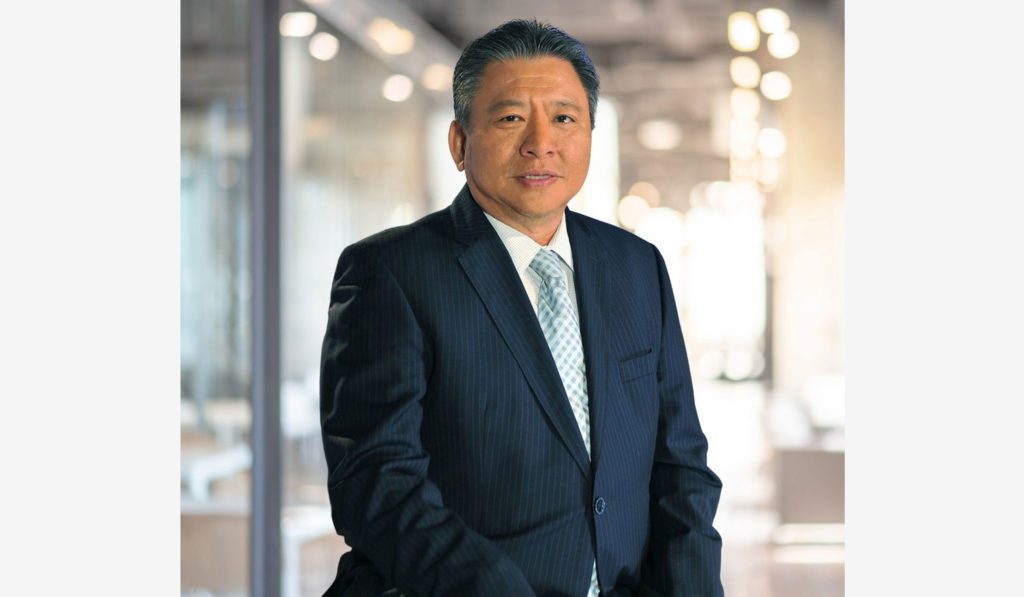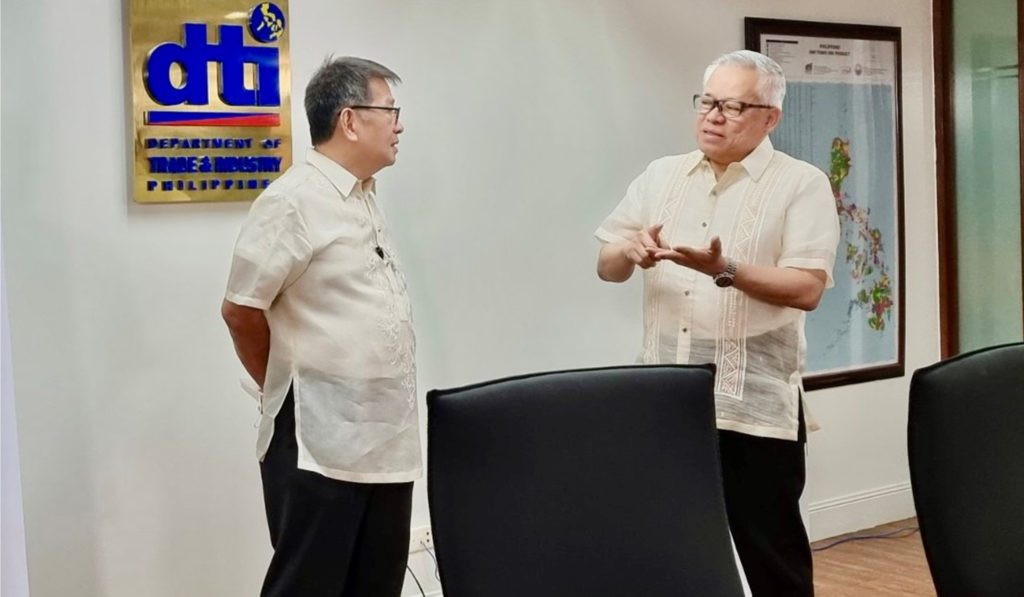
Samuel Po is President and CEO of JS Unitrade, makers of EQ baby diapers, adult incontinence care (Caress, Secure, Hy-Pants), Charmee feminine protection, Nursy wipes, and paper towels (Kitchenmate, Tidy). He is also the founder of Marco Polo Hotel Ortigas, plus other companies. In this interview, he shares about growth strategy amidst crisis. In a rare public speaking appearance, Mr Samuel Po will be speaking at the 13th Mansmith Market Masters Conference, scheduled on June 14-15, 2022.
Q1: You have survived many past crises – – your manufacturing plant burned down, your entire inventory gone with the Ondoy flooding. In your turbulent early business days, your suppliers broke rank with you and your agent even wanted to take over your business. What key lessons have big crises such as these taught you?
A1: First is to always think ahead – think about risks; think about how to mitigate those risks; and, think about what Plan B is. There are risks in life, and this is also true for business. We have to live with them, but it does not mean that we should be surprised by them or be caught unprepared.
You mentioned Ondoy. Ondoy was typhoon and resulted to unprecedented flash floods and damage to Metro Manila. But over 20 typhoons enter the Philippine area of responsibility every year. Typhoons are not out of the ordinary in the Philippines. Floods are, unfortunately, not unusual either. Our inventory is a significant portion of our assets as a company. Our products are also easily damaged by water – diapers and sanitary napkins are supposed to absorb and retain liquids, and are considered used once any liquid touches them. So, this is quite an obvious risk for us. In the early 2000s, I was not thinking that way, but we had asked someone to help us do a risk assessment. One of their recommendations was to change our insurance to include coverage for Acts of God. It costed us more, but we listened and it made sense to us, so we made the change. When Ondoy came and our inventory sank into the floodwaters, we were fully insured for our losses.
Second is to act and prepare. I think it is worse to be aware of risks and think of Plan B, but not actually do anything to prepare for it. After all the assessments and planning, we always put the plan into action. A manufacturing plant burning down is not something new. We saw that being reliant on just one manufacturing site was a risk. What would we do if the site burned down? Where would we get our supply? We planned for it and we implemented it. When our plant burned down in 2014, we had a bit of down time because we had to procure materials and move things around, but that took a few weeks until we normalized our supply, and not the months or years it would have taken to look for and build up the production line from scratch.
Third, luck always plays a role. Or, in other words, timing is critical. There are some things that need time to brew, but there are some things that just cannot wait. You need to do it now, or else it is too late. Our plan to have an alternative to our manufacturing site was just new at that time. If we did not act immediately, and just delayed by a few months, the manufacturing plant would have burned down when we did not have any alternative sources of supply.
Q2: Your businesses have grown despite the pandemic crisis of 2020-2021, in fact, Kantar Footprint of 2020 even ranked EQ as the 8th fastest growing brand, across all consumer sectors — what have been the critical success factors of JS Unitrade?
A2: We have always put importance in consumer-centricity. We knew that it was important that our consumers trusted the brand and that we could provide them great value. We started out having identified an opportunity through a personal need, so we always keep that in mind. The consumer needs to find value in what we’re offering. That is still very important today. For example, the baby diaper pants segment is growing tremendously because consumers appreciate the convenience it provides.
We also believe in innovation. In terms of product innovation, we always benchmark against other markets. We look at what other companies are doing; we look at the new technology and the new materials; we look at consumer trends and industry trends. We look at what could be applicable to our markets and consumers, and try to incorporate that in our plan. But there are other kinds of innovation too, which you also highlight in your Mansmith Innovation Awards and Summit. We also look at what other industries and other companies are doing that we could adapt or tweak to improve our own business and be more efficient.
Q3: You are part owner of a highly automated manufacturing plant in China, which is now the leading supplier of incontinence diapers in China and you also export to different countries. What benefits did you attain with the addition of controlling your manufacturing in your value chain?
A3: The most immediate benefit is that we can be assured of our supply. Supply is critical to us, there’s nothing to sell otherwise. But more than that, it gives us more control in terms of our product innovation. We do not want to sell what every other person is selling. That’s a commodities business, and it could lead to a price war. That benefits no one as the price and quality just spirals down. We are here to provide value to our consumers. So, with control of our manufacturing, we are able to benefit from the research and development, and also the better understanding of the product itself. Moreover, as the plant also produces for other customers, we are also able to take advantage of the scale that provides, which improves efficiency and lowers cost.
This is especially relevant right now, as we face increasing costs everywhere. Having control of the manufacturing means we are able to know where we can reduce cost, but without affecting the product quality or the consumer experience.
Q4: Your diaper and hotel startups have challenged market leadership versus the Goliaths in their respective categories. What pieces of advice can you give startups going against established Goliath brands?
A4: Know the market. Study the environment and landscape: who are the existing players? What are their strengths and weaknesses? Where is the opportunity? Study the potential customers: is there a segment whose requirements existing players are not fulfilling? What is the potential? What are the trends? What do the customers want? Study your own business: what are your capabilities? What do you need to survive? What are the possible hurdles?
Hear out both supporters and critics for their thoughts, but decide on your own. Entrepreneurs usually have a vision that other people do not understand yet. It’s our role to bring it to reality, but we need to stay grounded for that to happen.
Josiah Go is chair and chief innovation strategist of Mansmith and Fielders, Inc. The 6th Entrep Summit replay is available at Day 8 website.
See more articles on Entrepreneurship.


